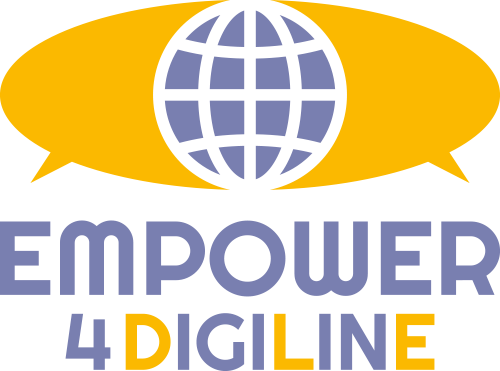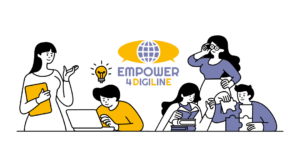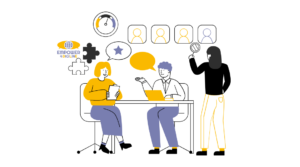In an era dominated by media, it’s easy to feel overwhelmed by the constant flow of information. Whether it’s through television, social media, search engines, or advertising, the ways in which we consume and interpret information are shaped by the media itself. Media literacy is the skill set we need to navigate this digital landscape effectively, enabling us to make sense of the messages we encounter every day.

Defining media literacy
Media literacy refers to the ability to access, analyze, evaluate, share, and create information from various media sources. It is about creating personal meaning from verbal and visual symbols, such as those we encounter daily through television, radio, computers, newspapers, magazines, and, importantly, advertising. It is about becoming conscious of the media’s influence on how we process information and form opinions.
The importance of this skill is evident when we consider the hidden mechanisms that impact how information is presented to us. For example, the search results we see on Google, the ads that pop up during our browsing sessions, or the variations in the information presented to different users—all these are shaped by algorithms and advertising technologies that influence the final message we receive. In other words, media literacy is about understanding how these mechanisms work and critically assessing the information we encounter.
Content vs. Platform: understanding media products
Media products have two essential components: content and platform. The content represents the non-material aspect—whether it’s journalism, fiction, or persuasive media—while the platform refers to the material element, such as television, websites, or social media apps. The content often aligns with the interests of the end user, while the platform determines how this content is distributed. While content is the focal point for the audience, understanding the platform and how it influences content delivery is equally important for media literacy.
Why Is media literacy important?
In today’s world, media literacy is crucial for several reasons:
- Critical thinking: by correctly interpreting information, individuals enhance their critical thinking skills. They learn to assess the purpose, intended audience, and possible biases behind media messages.
- Awareness of media impact: media literacy helps us understand the profound influence that media has on individuals and society. It encourages reflection on how media shapes our perceptions of reality.
- Informed decision-making: media literacy allows individuals to select trustworthy sources and interpret media content with an informed, critical mindset. This empowers them to make independent, objective decisions.
- Combating misinformation: as the spread of misinformation and fake news becomes more prevalent, media literacy provides the tools to distinguish between credible journalism and misleading content.

The Growing Challenge of media literacy
Despite the importance of media literacy, many individuals, especially older adults, struggle with identifying fake news, misleading advertisements, and fraudulent online content. According to the Adults’ Media Use and Attitudes Report (2024) by Ofcom, young adults are relatively adept at spotting scams or fake user profiles, but older adults often fail to recognize a fake social media profile. Furthermore, while 85% of internet users feel confident recognizing an online ad, less than half can accurately identify one.
A significant issue lies in the fact that nearly half of adult respondents in a survey by Media Literacy Now (Prothero A., 2022) reported that they did not acquire media literacy skills in school, which leaves many vulnerable to manipulation, misinformation, and scams.
The “attention economy” and its impact
The growing concern over media literacy becomes more pressing in the context of the “attention economy.” This term, coined in the 1960s, describes the phenomenon where human attention has become a scarce resource, increasingly commodified by digital platforms. In today’s world, technologies are designed to capture and retain our attention—often by using personal data to provide hyper-personalized content and advertisements.
These new technologies raise critical privacy concerns, as the data they collect is used to tailor our online experiences and influence our decisions. Machine learning algorithms, emotion AI, biometric tracking, and predictive analytics are just some examples of tools that gather vast amounts of personal information. While these tools offer real-life benefits, they also contribute to the manipulation of our attention and, by extension, our thoughts and behaviors.
Privacy and security challenges
To protect ourselves in this attention economy, it is crucial to manage our privacy and limit the data we share. Here are some tips:
- Adjust privacy settings: turn off ad personalization and restrict apps from accessing sensitive data such as location, camera, and microphone.
- Disable tracking features: use settings on your phone to limit how apps track your activities.
- Use privacy-focused alternatives: choose search engines that don’t track your activities and use email platforms that offer encryption.
- Manage wearable devices: limit data tracking from devices like smartwatches and voice assistants.
- Protect social media settings: adjust ad settings on platforms like Facebook and Twitter to reduce the personal data they collect.
Conclusion
In a world where media influences nearly every aspect of our lives, media literacy is not just a skill—it’s a necessity. By developing a critical understanding of how media works, we gain the tools to interpret information, protect our privacy, and make informed decisions. As we navigate the complexities of the modern digital landscape, media literacy empowers us to become active, discerning participants in a media-saturated society.
For further exploration, check out the Empower Learning Unit 9!








